How do humanitarian aid workers think and act?
This work focuses on how humanitarian organisations operate, including their members, affiliations, messages, practices and cultures. Aid to refugee, displaced, deported, exiled and interned populations plays a central role in humanitarian action both now and in the past. What types of aid are provided to internees and displaced persons? What kinds of obstacles and dilemmas does it face? What sorts of practical, political and ethical questions are raised by the participation of humanitarian organisations in population displacement and internment policies?
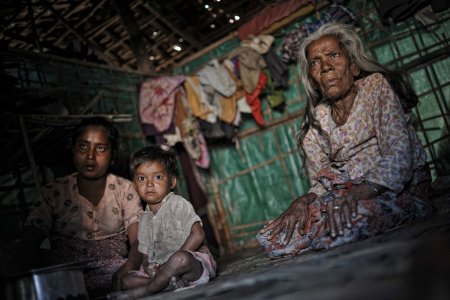 Kaung Htet
Speaking Out Case Studies
Kaung Htet
Speaking Out Case Studies
MSF and the Rohingya 1992 - 2014
11/19/2020The case study "MSF and the Rohingya 1992 - 2014" brings to light two decades of MSF advocacy activities as part of its humanitarian assistance to the Rohingya people in Bangladesh and Myanmar and explores the questions and dilemmas the organisation was confronted with surrounding speaking out.
MSF and kidnappings - the secrets and the dilemmas
09/18/2020On the 31st January, a symposium was held at Sciences Po in support of Fariba Adelkhah and Roland Marchal, researchers at Sciences Po's Center for International Research (CERI) who were arrested in Iran on June 5, 2019. Roland Marchal was released on 20th March 2020 in exchange for an Iranian engineer detained in France. On 6th May Fariba Adelkhah was sentenced to 6 years imprisonment for "propaganda against the political system of the Islamic Republic, and collusion to undermine national security". The researcher was offered conditional release on condition that she terminates her research, but she refused.
The symposium brought together diplomats, journalists, humanitarians and researchers, with the aim of "nourishing reflection about prisoners and hostages, from a political, legal and ethical point of view". Fabrice Weissman presented the experience of Médecins Sans Frontières in the face of kidnappings.
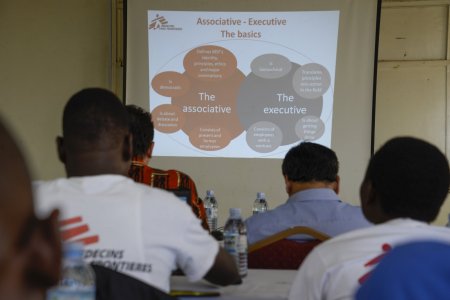 Aurélie Baumel
Interview
Aurélie Baumel
Interview
From bureaucratic inertia to “policy fragility”
09/08/2020Interview by Helai Hosseini. A first version was published on the website of the MSF France association on 31 July 2020.
In the wake of the Black Lives Matter movement in the United States, voices have risen within MSF denouncing the racist and discriminatory nature of our organization. Equal opportunity, they say, is not offered to all our employees. Founded in France in the early 70s by a handful of doctors and journalists, the organization has grown and become international, now employing over 46,000 people around the world, nearly 39,000 of whom are recruited locally. How has MSF’s policy towards its personnel evolved down the years? What is currently being done to fight inequalities? Here is Jean Hervé Bradol’s take on the major phases that have marked MSF’s transformation and the ways in which discussions are engaged today.
The Challenges of Globalization of International Relief and Development
11/27/2019First Published December 1, 1999 - Nonprofit and Voluntary Sector Quarterly (NVSQ) - Volume 28 Issue 1.
This article begins with a look at the role played by Médecins Sans Frontières (MSF) since its inception in 1971, and then looks at the challenges facing MSF today. It focuses on the confusion of humanitarian and political roles and on the goals MSF has laid out for itself to address this confusion. Humanitarian aid has become the favored response of governments to political crises, and governments have increasingly turned to NGOs to carry out their policies. In turn, NGOs have become increasingly dependent on governments for financial support. These changes have politicized aid delivery and made it difficult for NGOs to maintain their independence. In addition, as the number of NGOs increases and their activities become more specialized, there are pressures toward institutionalization and bureaucratization. To respond to these challenges, MSF has identified several goals, including maintaining organizational independence and flexibility and avoiding bureaucratization.
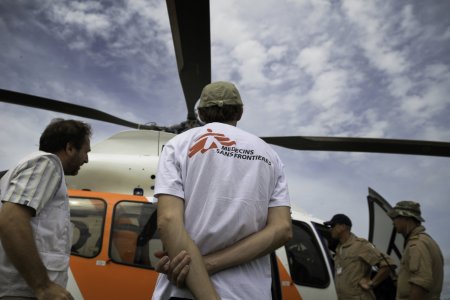 Robin Meldrum/MSF
Analysis
Robin Meldrum/MSF
Analysis
Ending the Code of Silence on Abductions of Aid Workers
11/22/2019This article discusses the policy of absolute secrecy on abductions adopted by aid organisations. It argues that the information blackout on past and current cases is to a large extent a function of the growing role of private security companies in the aid sector, which promote a ‘pay, don’t say’ policy as a default option, whatever the situation. The article contends that secrecy is as much an impediment to resolving current cases as it is to preventing and managing future ones. It suggests abandoning the policy of strict confidentiality in all circumstances – a policy that is as dangerous as it is easy to apply – in favour of a more nuanced and challenging approach determining how much to publicise ongoing and past cases for each audience, always keeping in mind the interests of current and potential hostages.
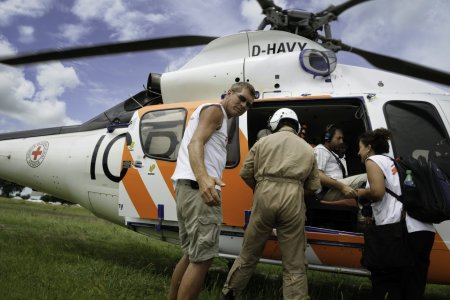 Robin Meldrum/MSF
Analysis
Robin Meldrum/MSF
Analysis
Oases of Humanity and the Realities of War. Uses and Misuses of International Humanitarian Law and Humanitarian Principles
06/28/2019The rehabilitation of international humanitarian law (IHL) has become a priority for those who think that the horrors of contemporary wars are largely due to the blurring of the distinction between civilians and combatants and for those who think that campaigning for the respect of IHL could result in more civilised wars. Similarly, respect for humanitarian principles is still seen by many as the best tool available to protect the safety of aid workers. In this text, I argue that both assumptions are misled. The distinction between civilians and combatants, a cornerstone of IHL, has been blurred in practice since the late nineteenth century. In addition, humanitarian agencies claiming to be ‘principled’ have been victims of attacks as much as others. History and current practice tell us that neither IHL nor humanitarian principles provide safety or can guide our decisions. Accepting their symbolic value, rather than their unrealised potential to protect and solve operational dilemmas, would free humanitarian agencies from endless speculations.
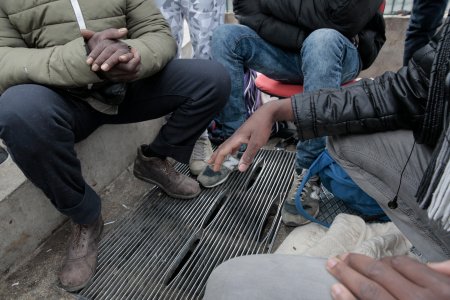 Antoine Kremer/MSF
Analysis
Antoine Kremer/MSF
Analysis
Médecins Sans Frontières-France: tensions arising from the “Migration” projects
05/07/2019In the summer of 2015, the French section of Médecins Sans Frontières started aid projects for migrant populations in Greece and France. The launch of these operations was the occasion for lively discussions within the association, both in terms of public positioning (how to justify an intervention in a rich country and not get lost in "political" territory?), and in terms of revising our operating methods, knowing that the primary needs of migrants were not primarily medical. Some people then recalled the association's militant practices in the 1990s, which were sometimes considered as abuses. By retracing the history of the French Mission, Michaël Neuman seeks to understand, with regard to the migration issue, the complex articulation between operational constraints, political positioning and militant practices.
NGOs are not in collusion with smugglers
07/10/2018Humanitarian aid organisations carrying out rescues at sea were made into the accomplices of human traffickers. This accusation is as absurd as it is unacceptable. Not only do rescue operations at sea save people from drowning, but they evacuate people in situations of immediate danger in Libya, MSF recalls.
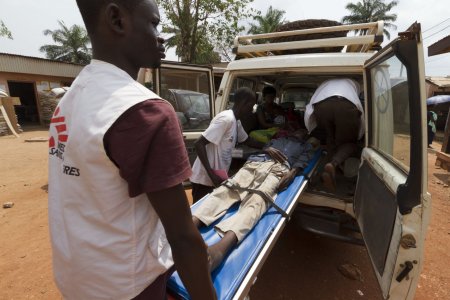 Andre Quillien
Review
Andre Quillien
Review
Review "Saving Lives and Staying Alive: Humanitarian Security in the Age of Risk Management"
11/24/2017Kevin MacMahon's review of "Saving Lives and Staying Alive: Humanitarian Security in the Age of Risk Management" (Michaël Neuman and Fabrice Weissman, London: C. Hurst & Co, 2016) is published in the Journal for the Study of Peace and Conflict (2016, pages 69-70).
